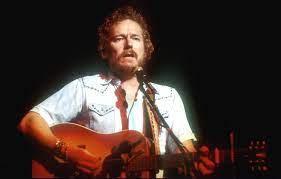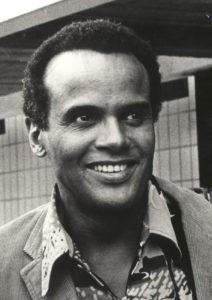In Memoriam
Gordon Lightfoot (1938-2023)
Gordon Lightfoot died of natural causes in Toronto on May 1 at the age of 84. Lightfoot was a Canadian singer-songwriter and guitarist who achieved international success in folk, folk-rock, and country music. He is credited with helping to define the folk-pop sound of the 1960s and 1970s. He has been referred to as Canada’s greatest songwriter, and his songs have been recorded by some of the world’s most renowned musical artists. Lightfoot’s biographer Nicholas Jennings said, “His name is synonymous with timeless songs about trains and shipwrecks, rivers and highways, lovers and loneliness.”
Lightfoot’s songs, including “For Lovin’ Me”, “Early Morning Rain“, “Steel Rail Blues”, “Ribbon of Darkness“—a number one hit on the U.S. country chart with Marty Robbins‘s cover in 1965—and “Black Day in July”, about the 1967 Detroit riot, brought him wide recognition in the 1960s. Canadian chart success with his own recordings began in 1962 with the No. 3 hit “(Remember Me) I’m the One”, followed by recognition and charting abroad in the 1970s. He topped the US Hot 100 or Adult Contemporary (AC) chart with the hits “If You Could Read My Mind” (1970), “Sundown” (1974); “Carefree Highway” (1974), “Rainy Day People” (1975), and “The Wreck of the Edmund Fitzgerald” (1976), and had many other hits that appeared in the top 40. (Wikipedia)
Personal note from Chris Moser: Several years ago I wrote Lightfoot a lengthy fan letter, one that showed that I had kept up with his music not just in his most popular but throughout all his career. He was so appreciative that one evening he actually called me on the phone. We had a delightful conversation for about 20 minutes. How many recording artists would care that much about his fans to do that? I’ve never forgotten how thrilled I was. Ever since then I’ve made an annual contribution to the Gordon Lightfoot Fund. That’s the college scholarship program Lighfoot founded at Northwestern Michigan College with proceeds from the song The Wreck of the Edmund Fitzgerald for children and descendants of that ship’s lost sailors.
Harry Belafonte (1927-2023)
Singer. actor and Civil Rghts activist Harry Belafonte died from congestive heart failure at his home in New York City on April 25. at the age of 96. Belafonte popularized calypso music with international audiences in the 1950s. Belafonte is one of the few performers to have received an Emmy, Grammy, Oscar, and Tony (EGOT), although he won the Oscar in a non-competitive category. He earned his career breakthrough with the album Calypso (1956), which was the first million-selling LP by a single artist.
Belafonte was best known for his recordings of “Day-O (The Banana Boat Song)“, “Jump in the Line (Shake, Senora)“, “Jamaica Farewell“, and “Mary’s Boy Child“. He recorded and performed in many genres, including blues, folk, gospel, show tunes, and American standards. He also starred in films such as Carmen Jones (1954), Island in the Sun (1957), Odds Against Tomorrow (1959), Buck and the Preacher (1972), and Uptown Saturday Night (1974). He made his final screen appearance in Spike Lee‘s BlacKkKlansman (2018).
Belafonte considered the actor, singer, and activist Paul Robeson to be a mentor. Belafonte was also a close confidant of Martin Luther King Jr. during the Civil Rights Movement of the 1950s and 1960s. He was a vocal critic of the policies of the George W. Bush and Donald Trump administrations. Belafonte acted as the American Civil Liberties Union celebrity ambassador for juvenile justice issues.
Belafonte won three Grammy Awards (including a Grammy Lifetime Achievement Award), an Emmy Award,[3] and a Tony Award. In 1989, he received the Kennedy Center Honors. He was awarded the National Medal of Arts in 1994. In 2014, he received the Jean Hersholt Humanitarian Award at the Academy’s 6th Annual Governors Awards[4] and in 2022 was inducted into the Rock and Roll Hall of Fame in the Early Influence category. (Wikipedia)
Personal note from local folk singer and AAFFM member George Hergen: “We’ve recently lost Ian Tyson, Gordon, Harry Belafonte, Patrick Sky, Tony Rice, all founding members of the Kingston Trio and (although some time ago) all of the Clancy Brothers and Tommy Makem. I guess it’s up to us to keep the music alive.”


